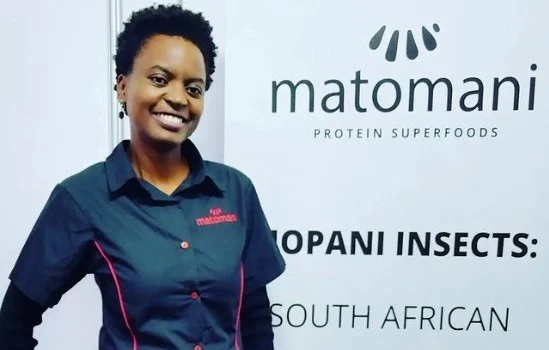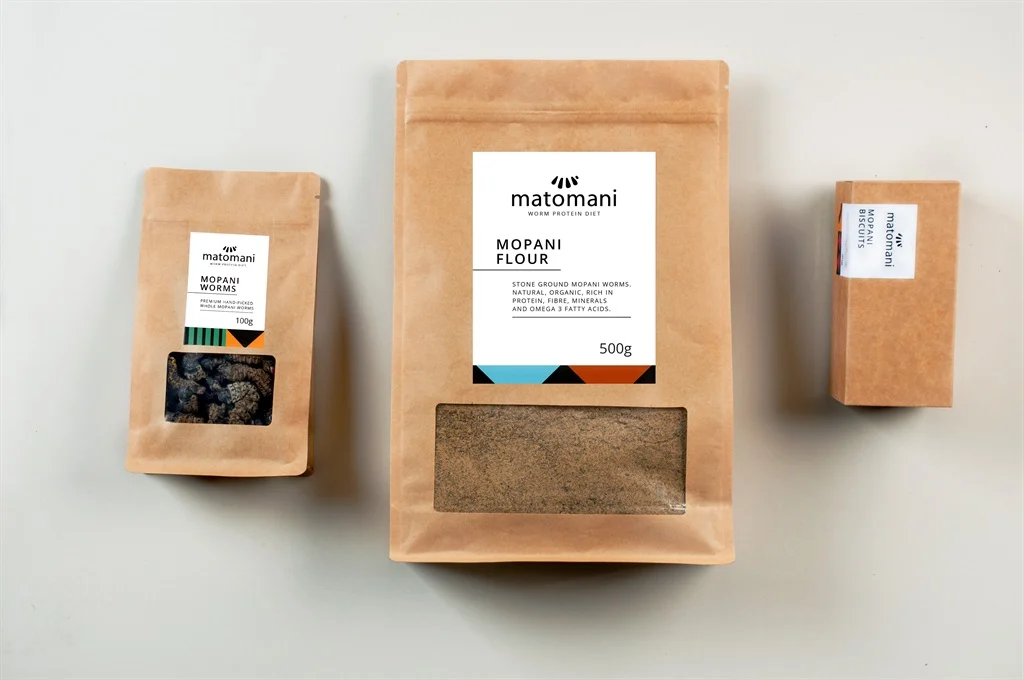In late 2021, Wendy Vesela-Ntimbani went ahead and did what most financial advisers tell us not to do and launched Matomani.
“So I cashed out my pension fund to start my business in November 2021,”
She had a vision of bringing exquisitely packaged masonja products to the world, while at the same time, uplifting her community members.
Wendy has so far she has managed to employ seven people — four based in Johannesburg and three based in Phalaborwa — where the harvesting of the mopane worms happens.
Background

It was ten years ago that Wendy first considered launching a mopani business. She wrote a business plan. Then decided the world wasn’t yet quite ready, so held off.
She was born in Kheyi village in the Mopani District of Limpopo. Given her rural upbringing, it was inevitable that she would one day come back home and do the kind of work she’s doing right now.
“We ate beautiful food and had a deeply rooted sense of community. Growing up in a community that’s tight-knight, your identity is always ‘you are a child of the village, not just your mom and dad’.”
After matriculating in 1999, she went on to study Chemical Engineering, then Supply Chain management in Europe.
When Covid-19 hit, Wendy was working as a supply chain manager doing logistics and distribution.
“With all the job disruptions, I thought I needed to go back to my business plan. I follow trends. I know what is going on. Now, insects and insect protein are big. Cutting edge,”
She decided it was time to come back home and figure out how to create a distinctly South African Brand that has many health benefits, and one that would also benefit her rural community.
She cashed out her pension fund and launched Matomani, a company which aims to use mopani worms to provide South Africans with a sustainable, low-impact, organic, healthy and protein-rich addition to their diet.
With demand rising since she started her venture seven months ago, Wendy plans to expand the business and have multiple harvests a year.
She hires rural women to gather mopanes when they are in season around December and April. The mopanes are then gutted, boiled and dried, to then be used whole or milled.
Matomani houses 4 products:

- Mopani worms
- Mopani Flour
- Mopani Biscuits
- Mopani Protein Bar
According to Wendy, her biggest challenge so far has been funding. The profit she has made from sales has greatly assisted with the expenses of running the business, but she thinks additional funding could help her grow more trees and hire more people from the village.
Vision for Matomani??
“Our plan is we are going to start farming mopani insects.” Among other things, planting more mopani trees and using greenhouses for incubation. “And instead of one harvest a year, we plan to create an environment for them to thrive and to have four harvests a year.” Her specialty as an engineer is processes. “Once the process is up and running and the cycle is mastered, it will all run pretty smoothly.” But all that, right now, is “the future.”
Get South Africa’s latest entrepreneurial or business success stories delivered right to your inbox — Sign up to Entrepreneur Hub SA’s newsletter today ⬇️⬇️⬇️

eBook: 50 South African Entrepreneurs Reveal HOW THEY MADE IT




